The Best Free TV Shows on Tubi
Photo Courtesy of NBC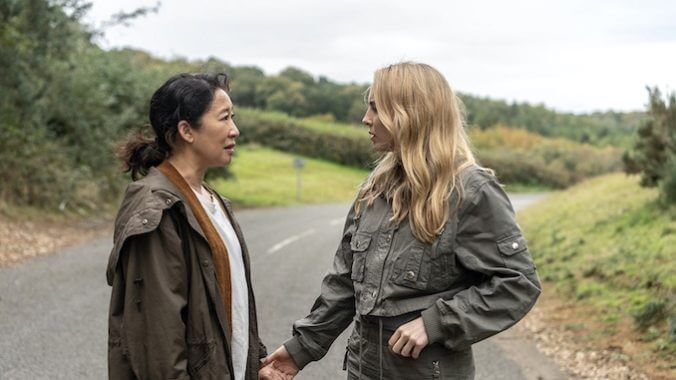
Tubi is a FAST (free, ad-supported streaming television) service from the Fox Corporation, and has a wide selection of series streaming for free, just with the price of ads. What makes Tubi unique is the eclectic mix of what it frequently has available, including offerings from a wide variety of other channels and networks.
No account is required to start streaming on Tubi, though creating one will allow you to keep track of your watch history, as well as add shows and movies to your watchlist. Tubi’s rolodex of movies is impressive, and while its television slate is slightly less-so, there are still numerous classics and must-see TV shows to watch on the platform. Below, we have broken down the best shows to watch on Tubi (listed in no particular order), all available for totally free.
Black Sails
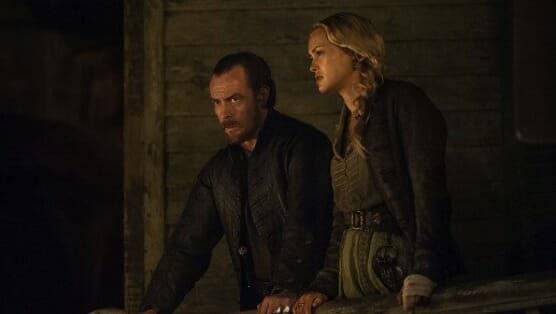
The most popular depictions of pirates in television and movies have mostly been created for the family. They are sweet, comic depictions of days gone by with hunts for buried treasure. Starz does not take that path with their pirate based show, Black Sails. The show is written as a prequel to Treasure Island and follows Captain Flint (Toby Stephens) as he hunts treasure alongside John Silver (Luke Arnold). While Treasure Island might be required reading for kids at school, this show is anything but family friendly. Black Sails is gritty, showing how hard real life was in the West Indies, and how brutal pirates were not only to their enemies but to each other. You can feel how difficult it was, and takes the shine off of the buried treasure. The show is also historically accurate, showing a diverse cross section of people—the women are powerful leaders, the love stories are strong, and you feel like you have an inside look at what pirate life was really like. Starz has shown that when it comes to historical fiction they are masters at their craft. When you watch Black Sails, you don’t have to wonder why their lifespans were so short; life was rough, but the rewards were a thing of legend. —Keri Lumm
Mr. Robot
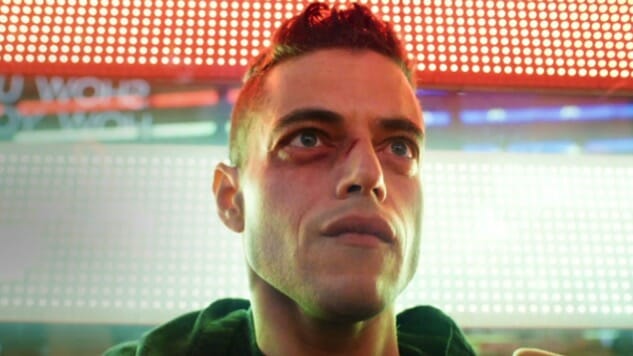
Mr. Robot‘s Elliot Alderson (Emmy winner Rami Malek) remains one of the most seductive characters on television. To set an hour-long drama more or less inside its own protagonist’s head is a bold gambit, and Elliot, his philosophical narration roiling beneath his placid surface, is a convincing guide through creator Sam Esmail’s tumult of hallucinations, memories, delusions, and dreams. If the draw in Season 1 was its (rarely seen on TV) anti-capitalism, Season 2 witnesses Mr. Robot emerge as a claustrophobic portrait of a young man’s psychological extremes, and that it works at all is thanks mostly to our desire to understand the cryptic, complicated, always compelling Elliot.
Beginning its fourth and final season with some big shifts for its characters (including at least one shocking death), Mr. Robot remained awe-inspiring for the ways in which it plays with the concept of what you can do on television. Few shows have ever delivered the same level of creative spark on a weekly basis, but that’s because Sam Esmail is only one man; the creator and auteur has truly made his mark on the TV landscape with each inventive choice. The season continues to focus on the increased threat presented by the mysterious Whiterose (B.D. Wong) and Elliot’s (Rami Malek) efforts to take her down, was a strong opening that delivered a few major twists. It’s all-consuming television that never takes its foot off the accelerator, except for the occasional moment of grieving that reminds us that these characters might be caught up in a crazy global conspiracy, but that doesn’t make them any less human. —Liz Shannon Miller and Matt Brennan
Columbo
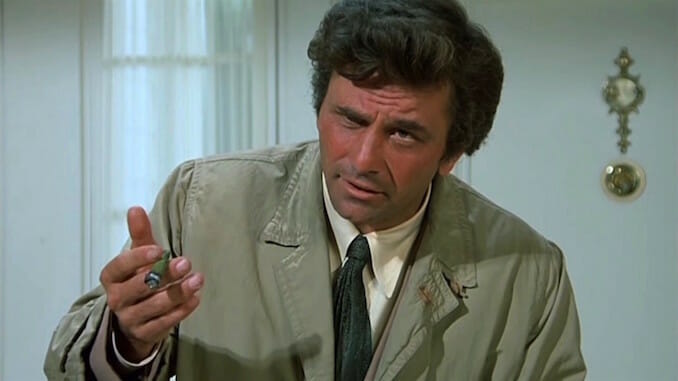
“Just one more thing…” With those words, audiences knew that Peter Falk’s Columbo was about to very casually tear into whatever suspect was unfortunate enough to be in the same room as him. In an age where every cop now needs to be a troubled, yet brilliant, antihero, a character like Columbo thrived on his unassuming, affable nature, which inevitably resulted in the show’s villain-of-the-week underestimating him, unknowingly giving themselves away in the process. Indeed, unlike most police shows at the time, Columbo always started by following the perspective of the perpetrator, with the audience then tracking how Columbo would crack the case (referred to by the show’s creative team as a “howcatchem” instead of a “whodunit”). Presented as a series of mini-movies spread out over the course of nearly 35 years, Columbo had its inevitable ups and downs, with some cases being infinitely more interesting than others. What remained largely the same, however, was Falk’s charismatic portrayal of the lovable, titular detective. It’s a performance for the ages, and one that has been frequently imitated but never duplicated.—Mark Rozeman
Big Mood
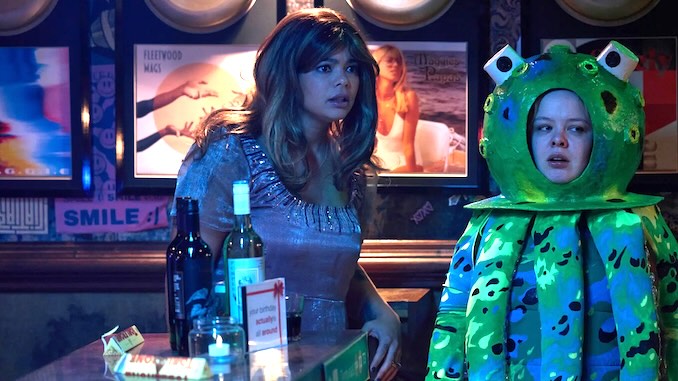
Channel 4’s Big Mood has made it across the pond thanks to Tubi, where you can now watch all episodes of this hilarious and heartfelt series. Following best friends Maggie (Nicola Coughlan) and Eddie (Lydia West), Big Mood catalogs their journey as they move into their thirties, and begin to question whether or not their 10-year-long friendship is truly serving either of them. An irreverent comedy keen on highlighting that life doesn’t just stop as you exit your twenties, this series is a must-watch for any fan of Coughlan’s previous work on Derry Girls, or anyone just missing the distinctly millenial vibes of The Bold Type or Insecure. —Anna Govert
Killing Eve
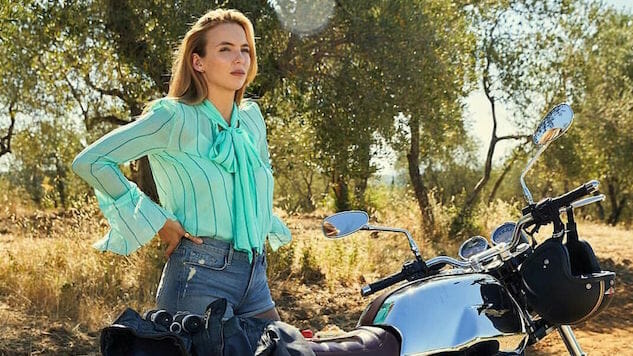
BBC America’s thrilling international cat-and-mouse game is one of the freshest and most enthralling TV shows to come around in a long time. Created by Fleabag’s Phoebe Waller-Bridge, Killing Eve puts the spotlight on two dynamic women in roles typically reserved for men: A stoic MI-5 agent (Eve played by Sandra Oh) and a vivacious international assassin (Jodie Comer’s Villanelle). The two pursue each other from Bedminster to Bruges (more or less), in funny, flirty, fascinating fashion.
When the breakout hit returned, it did so with a second season that acted as an almost perfect inverse of its first. Villanelle is knocked off-kilter (at least at first), and Eve ready and willing to commit violence— the dynamic fundamentally changed. A few things remained the same, though, like Villanelle’s outrageously excellent sartorial choices, as well as some particularly creative, grisly deaths. The show also remained incredibly interesting and stylish, and introduced us to a host of interesting new characters and dilemmas for our core duo to face. It’s main problem, though, is that it’s just too short.—Allison Keene
grown-ish
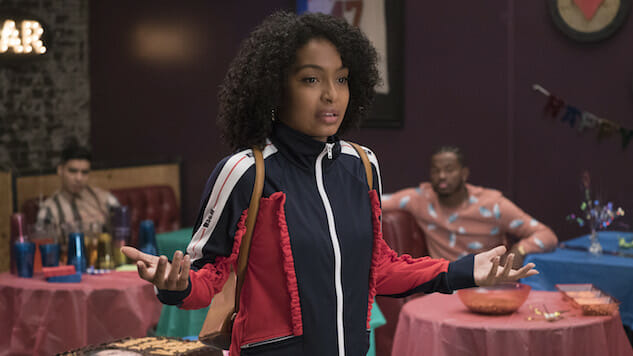
Even when the process is kept entirely in-house, it’s hard to know what to expect when an established series spins fan-favorite characters off to anchor something new. For the resulting spin-off to not only shift its target demographic, but move to a whole other network, like Yara Shahidi’s college-focused grown-ish did when it landed on Freeform after breaking away from ABC’s black-ish? That was more than unexpected—it was bold. Happily, it also proved to be a savvy play, the spin-off’s charming young cast, sharp writing, and fourth-wall-breaking confessional tone combining to give it real legs. As the black-ish-exported lead, Zoey, Shahidi is of course a blast to watch (even as Zoey makes bad decision after bad decision, as young adults alone at college for the first time are wont to do), but truly no more so than the rest of the ensemble cast, any one of whom could be considered a particular standout, depending on the mood you’re in. For the purposes of this list, Francia Raisa comes to mind, as her character, Ana Torres, is so diametrically opposite of the one she played for years on ABC Family’s The Secret Life of the American Teenager, but pop phenoms Chloe x Halle might be who you’re most drawn to, or Luka Sabbat’s overly chill Luca, or Emily Arlook’s kinda-messy Nomi, whose most recent major arc saw her coming out to herself (and the professor she inadvisably made out with) as bisexual. There’s just so much going on on grown-ish, and while much of it is as awkward and painful as the growing pains of real young adulthood can be (especially in the age of social media), it’s never not a delight. —Alexis Gunderson
Monty Python’s Flying Circus
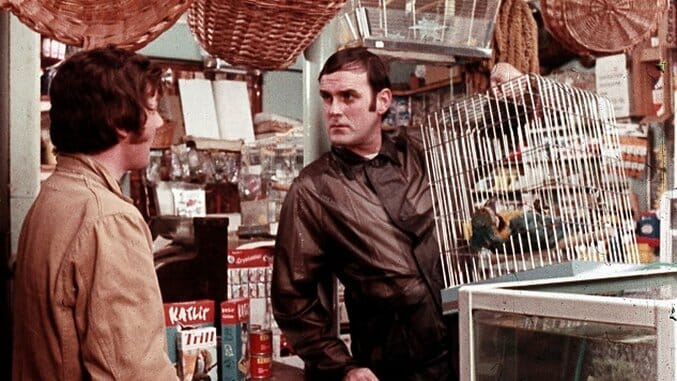
And now for something completely different! The British sketch comedy, which ran from 1969 to 1973, is so beloved that it’s since become “the subject of questions”:https://nypost.com/2013/01/28/weird-but-true-3838/ on the British citizenship exam. Provocative, irreverent, and profoundly weird, its send-up of the isle’s culture and institutions—particularly the elite, educated class from which the troupe’s own members hailed—take merciless aim at authority in every conceivable form, all with a dash of surrealism and Terry Gilliam’s sublime animations. Its arrival on Netflix is nothing less than a godsend. —Matt Brennan
Murder, She Wrote
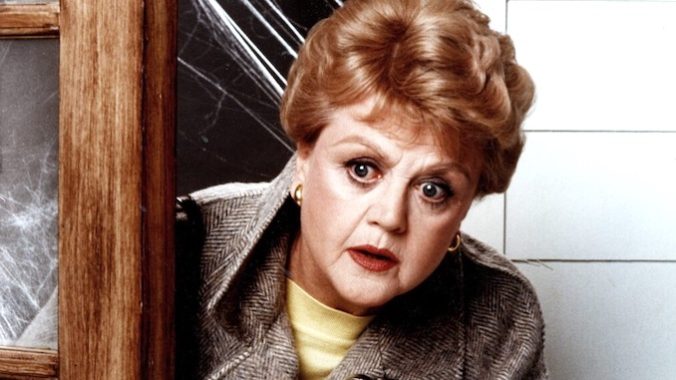
There might not be another person in the world with worse luck than Jessica Fletcher (Angela Lansbury), a mystery writer followed by death at every corner. Though, it’s that same unlucky streak that creates the wonderful and classic series that is Murder, She Wrote. Taking place mainly in her hometown of Cabot Cove, Maine, Jessica uses her keen eye and writers’ intuition to solve various mysteries that rock her quaint seaside town. The mailman dropped dead of mysterious circumstances? Jessica Fletcher is on the case. This series, which ran for 12 seasons and has become a classic in its own right, is as charming as it is suspenseful—and with a beautifully shot, film grain-tinted look and classic case-of-the-week capers, Murder, She Wrote is a perfect series for any whodunnit fan. —Anna Govert
Unsolved Mysteries
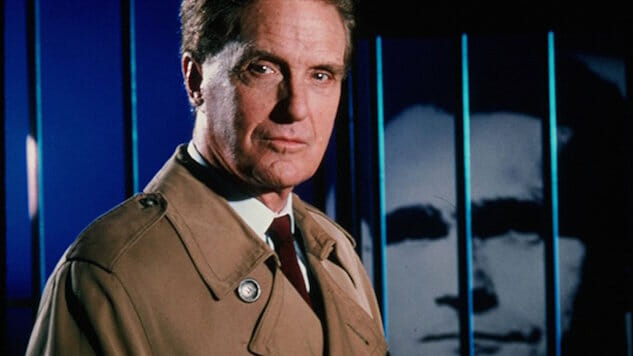
“This program is about unsolved mysteries…”
That introductory message was followed by a Halloween-inspired theme song and the voice of host Robert Stack, a voice that would feature prominently in my nightmares for years to come. For the unfamiliar, Unsolved Mysteries is a documentary-style TV show that originated in 1987 and went through multiple hosts and networks over the course of its run. But the height of its popularity came during the Stack years, which lasted from 1987 to 2002. Each episode features three or four unsolved cases, covering a wide range of subjects: murders, kidnappings, supernatural occurrences, lost treasure, and even historical mysteries, such as the disappearance of Amelia Earhart. The producers used actual evidence, interviews with those close to the case, and some of the most mullet-heavy reenactments ever recorded to tell the story. At the end of each episode, Stack would plead with viewers to contact the authorities with information on the cases they’d just seen—and give updates on any previous cases that we, the viewers, had helped solve. (Most recent “prestige” crime docuseries still follow much the same narrative template that Unsolved Mysteries helped pioneer: Each introduces a case, the theories that might explain it, and the potential suspects, then sorts through the evidence for and against each.)
The truth is that we’ll never stop being fascinated by the very worst of humanity, but the way in which we want to consume it has changed and will continue to do so. UM changed the landscape of true crime on television and changed what we expect from it. The show, like the series that have followed it, didn’t always provide the answers we wanted—but then, neither does real life. Robert Stack did, however, always leave us with one comforting message: the hope that the unsolved would be solved and justice would be served. “For every mystery, there is someone, somewhere who knows the truth,” as Stack says. “Perhaps that someone is watching. Perhaps it’s you.” —Stephanie Ashe
Next Level Chef

Gordon Ramsay—or at least his production company—represents a creative font unparalleled in its prodigious output on television these days, as a quick browse through streaming services will attest. It’s barely possible to even nail down how many disparate shows have Ramsay’s face attached to them at this point, and one wonders if even the celebrity chef could name every iron he has in the fire. Few are as flamboyantly silly, though, as Next Level Chef, a cooking competition built around the gimmick of a three-storied kitchen, where chefs on each level have the advantage (or hindrance) of working with progressively better or worse ingredients and equipment. Like the Netflix dystopian film The Platform, those left on the shabby bottom floor, dubbed “the basement,” are left cooking with whatever scraps are left when the show’s moving platform arrives, establishing a simultaneous satire of socioeconomic class and a fantasy of upward mobility, where contestants can “bootstrap” themselves up to a higher level with grit and determination. In truth, though, what we’re watching the show for is the pure sense of unfiltered chaos it radiates, the sight of a contestant blindly grabbing at ingredients for 30 seconds and only then taking a step back to wonder “Is it possible to cook a dish with these things?” TV is full of cooking competitions, but few thrust as much entertaining stress on their competitors. —Jim Vorel
Pride & Prejudice (1995)
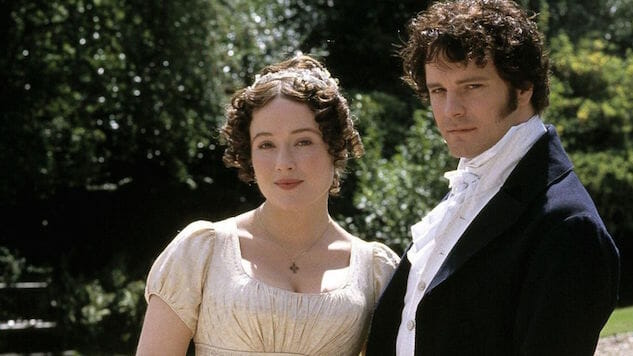
Horse riders make their way through a 16mm-colored countryside, Colin Firth makes his way into a lake, and Austen makes her way onto TV in what remains the definitive adaptation of Austen’s work for the screen (the breathtaking opening three minutes of Joe Wright’s 2005 film adaptation aside). The music bounces from scene to scene with curlicue youthfulness. The acting prods the lines around it with sly good cheer. Through it all, the spirit of the adaptation by Andrew Davies can be found in his describing it so: “Let’s have Elizabeth on a hillside seeing these two tasty blokes galloping along, and something about them makes her skip down the hill.” And, for the implicit back and forth that inspires (let alone what follows), we follow, too. —Evan Fleischer
Jojo’s Bizarre Adventure
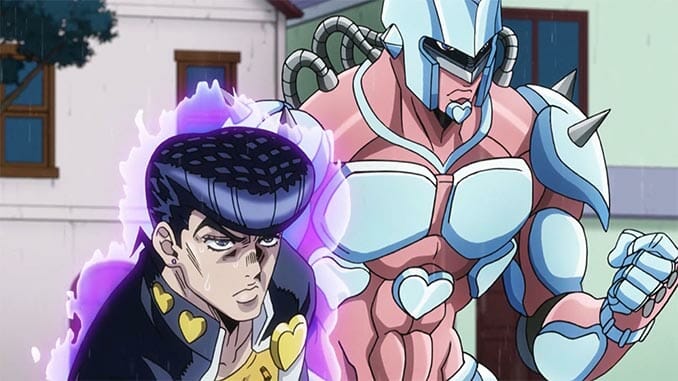
For some time, Jojo’s Bizarre Adventure has been the anime I turn to when I need some R&R. Not that anything about it, at least at first glance, is particularly chill. It’s an anime full of men built like classical sculptures arguing as loud as they can over psychic battles they’re having, seemingly in molasses-slow time. What feels like hours encapsulates little more than a minute in JJBA’s universe. The anime is so much more than that, though; it’s a journey that spans a century and obliterates the rules of how to tell a traditional adventure story, taking liberal inspiration from Indiana Jones, Versace, classic rock, and any other fleeting interest of mangaka Hirohiko Araki to make an explosive hodgepodge of fast-paced absurdity, a language you’ll pick up on quickly and soon fine cozier than Sailor Moon. There’s a reason JJBA continues to be one of the most influential pieces of media to come out of the anime world. – Austin Jones
Midsomer Murders
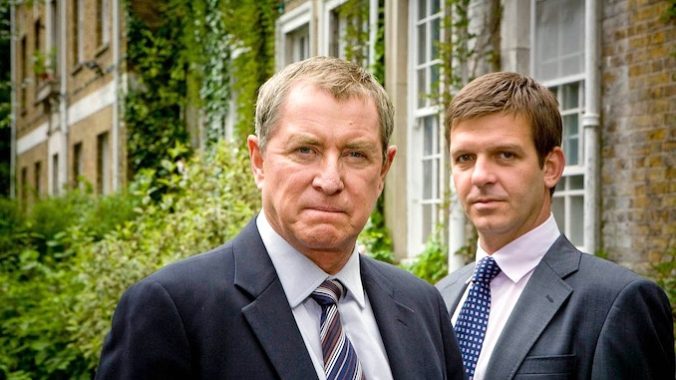
With 23 seasons to its name since its debut in 1997, ITV’s Midsomer Murders is the UK’s longest running detective drama. Based on Caroline Graham’s crime-novel series Chief Inspector Barnaby, Midsomer Murders takes place in the affluent Midsomer county, where the eccentricities of its residents lead to compelling cases. While the series began with Detective Chief Inspector Tom Barnaby (John Nettles) at its center, Nettles’ retirement from the show in 2011 resulted in Detective Chief Inspector John Barnaby (Neil Dudgeon) taking the reins from his older cousin. Still as popular as ever, this charming series is a staple of British television, and specifically British crime dramas. —Anna Govert
Scandal
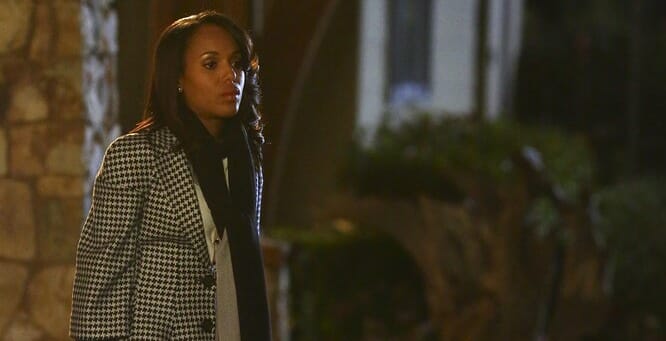
When so much of a show’s plot is made up of infuriatingly dramatic cliffhangers, it can be deeply satisfying to experience a series, like Scandal, as a binge. If you haven’t jumped on the bandwagon yet, have no clue what a Gladiator in a suit is, and don’t know whether you’re Team Jake or Team Fitz, there’s no time like the present. Kerry Washington plays Olivia Pope, a lawyer and crisis management expert who represents high-profile politicians and other clientele in Washington D.C. AKA the people running this great nation, who always seem to find themselves in the midst of a scandal.
Based on real-life D.C. fixer Judy Smith (the former Bush Administration aide who has represented folks like Monica Lewinsky, Kobe Bryant, and former Senator Larry Craig), Pope is a formidable character, often as much of a scandalous megalomaniac as her clientele. Sure, Rhimes (also the Created by of Grey’s Anatomy and Private Practice) draws on many-a-cliche for this series—endless love triangles, characters killed off at a moment’s notice, etc. But Scandal is, simultaneously, a refreshing and forward-thinking experience, with a black woman at the head of a very bizarre Scooby gang (brought to us by Weeds actor Guillermo Díaz, along with Darby Stanchfield, Katie Lowes, and Columbus Short), one of the first gay villains on television, and a stark quality that seeks to peel the mask off of American politics. Funny, sexy, downright frightening at times, and complete with an amazing ‘70s soundtrack for every episode, Scandal is the stuff binge-watching dreams made of. —Shannon M. Houston
Degrassi: The Next Generation
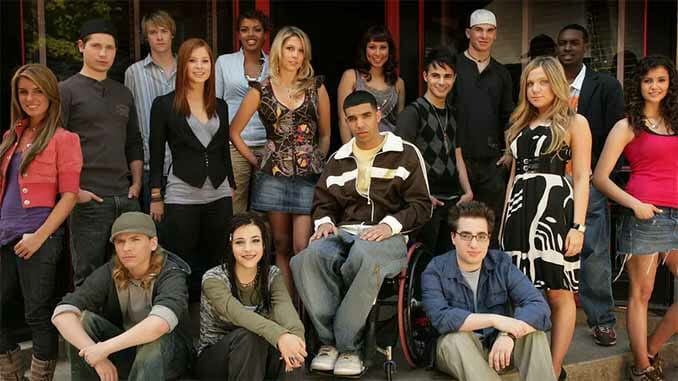
Technically a spinoff because it features existing characters, but also technically a reboot, Degrassi: The Next Generation is a product of the long-running Degrassi franchise, which launched in 1979 in Canada. This series, which debuted in 2001 and ran for 14 seasons, is perhaps the best example of what makesDegrassi special: it takes the very real challenges teens face and confronts them head-on with a perfect mix of educational lessons, melodrama, and self-aware humor to make must-see TV. Even as characters came and went over the years (such is the nature of a show set in high school), The Next Generation never lost its ability to reach young, impressionable audiences and tell important stories while tackling timely topics, such as teen pregnancy, drug abuse, abortion, and gang violence, just to name a few. So there’s a reason the Degrassi franchise has existed for as long as it has, but The Next Generation is the reason it’s as popular and well loved as it is. —Kaitlin Thomas
Scooby Doo, Where Are You!
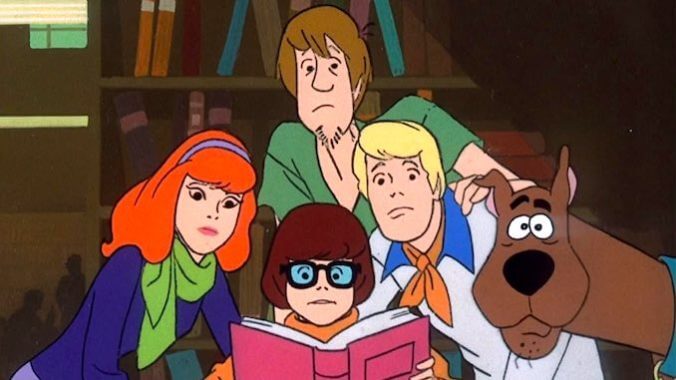
In our popular culture, there might not be another group of characters as timeless as Scooby Doo and his band of meddling kids. In their first appearance on the now-iconic Scooby Doo, Where Are You!, jock Fred (Frank Welker), original “it girl” Daphne (Stefanianna Christopherson), brainiac Velma (Nicole Jaffe), hippie Shaggy (Casey Casum), and their dog Scooby Doo (Don Messick) travel around in their blue and green Mystery Machine van, solving seemingly supernatural mysteries. Scooby Doo, Where Are You!’s formulaic episodic structure and archetypal characters may have made the series memorable, but it also had a pattern that simply could not be replicated—though not for a lack of trying from Scooby Doo-studio Hanna-Barbera. Jabberjaw, Clue Club, Goober and the Ghost Chasers, Speed Buggy, and many more “4 kids and a pet—or sentient car—solving mysteries” cartoons were made by the studio in an attempt to replicate the runaway success of Scooby Doo, but lighting only struck once. Now with countless films and shows having been produced around the Scooby Gang, Scooby Doo, Where Are You! laid the groundwork for what would become a pop-culture empire. (And if you’re looking for more Scooby to watch, Tubi also has numerous other series featuring Scooby and the gang). —Anna Govert
Merlin
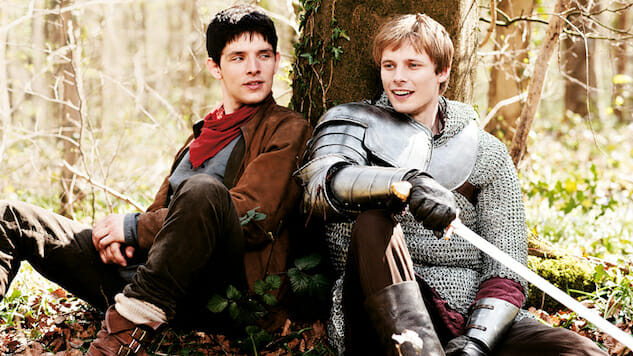
A lot of fantasy is based on existing myths, legends, and folklore, and although you might think you know the story of the famous King Arthur and Merlin, you’ve never seen it told quite like this before. The fan-favorite Merlin, which aired on the BBC from 2008 until 2012, is set in a version of Camelot in which magic has been outlawed. The story begins when Arthur Pendragon (Bradley James) and the wizard known as Merlin (Colin Morgan) are young men who cannot stand each other, but after the latter becomes the former’s personal servant, they put their issues aside and become fast friends. And this is a good thing for both men, since Merlin has to often use his gifts in secret to save Arthur—often without him knowing—so the latter can one day fulfill his destiny as the man who will restore magic to the kingdom. If you’re looking for a lighter fantasy show than some of the others on this list, this is a really good, quite fun option with plenty of bromance. —Kaitlin Thomas
Versailles
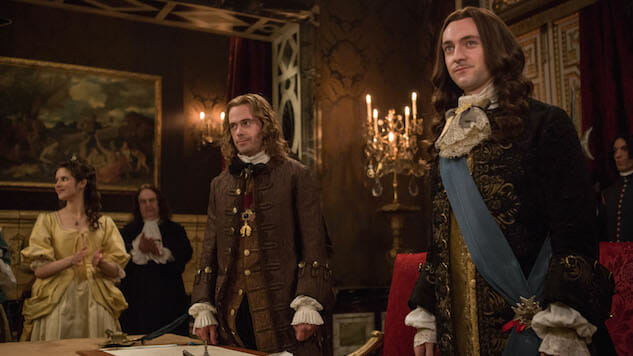
The wonderfully opulent and soapy drama Versailles focuses on the reign of France’s King Louis XIV, also known as the Sun King. The expansion of France, and the increased taxation that lead towards revolution, plays out against the building of the magnificent Versailles, as the series leans into the courtly drama and scandals that defined the era. Blagden is fantastic as a monarch who truly believes he was chosen by God (which leaves him both bold and conflicted), and is matched in confidence by Vlahos as Louis’ brother Philippe, the Duke of Orleans, who often wore women’s clothing and had a long-running affair with the Chevalier of Lorraine. There are mistresses and sexual romps to spare in the series, but also mysteries, double-crossings, and witchcraft. This is not a stuffy historical drama, but a modern-feeling escapade with a minimal glance towards accuracy. We wouldn’t want it any other way. —Allison Keene
The Fall
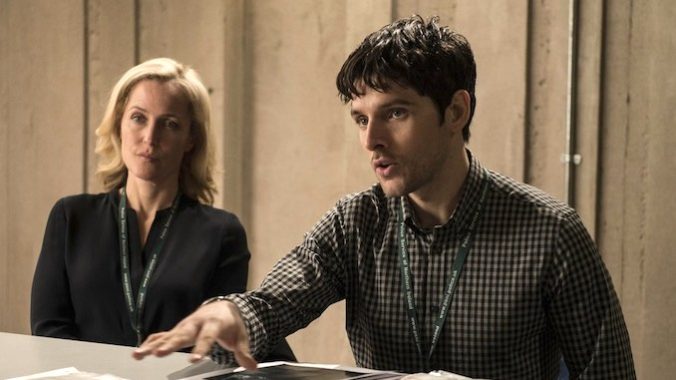
Let it be known that before he was Christian Grey, Jamie Dornan proved his acting chops and charisma as a disturbingly un-disturbable murderer in this superb psychological thriller. Dornan’s mild-mannered husband, father and grief counselor (!) is among the most terrifying onscreen serial killers in recent memory. Paul Spector is a stalker, as exacting and methodical as his eventual pursuer. Enter Gillian Anderson’s Stella Gibson, a British detective superintendent called to Belfast to look into a spate of gruesome murders. As the cat-and-mouse game intensifies, Anderson’s characterization is its own triumph: analytical, uncompromising, reserved, but brazenly sexual on her own terms, entirely unfazed by the politicking and dick-swinging of her male colleagues. That we know the identity of the killer from the show’s first frames, and yet can’t take our eyes off the screen is a testament to the stealth creep with which The Fall operates. —Amanda Schurr
For all the latest TV news, reviews, lists and features, follow @Paste_TV.







































